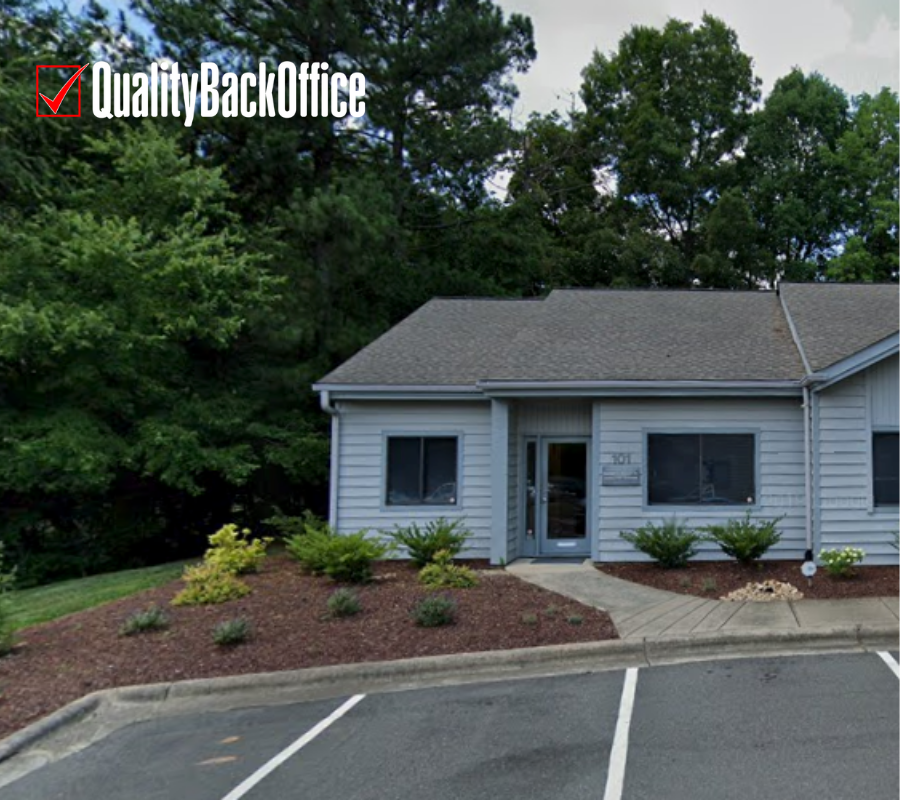Durham, NC
Professional Accounting in Durham
As a part of the research triangle, our Durham office is just 30 min from Raleigh, NC. The Research Triangle is a hub for startups of many industries.
By still providing businesses of all sizes bookkeeping, taxes, payroll, AP, AR, and Virtual CFO. QBO offers targeted accounting Durham assistance for startups.
Many new startups are not sure where to begin. Most dive right into the work of their business – marketing or developing their product, however, it is essential to establish back-office and operational processes like bookkeeping Durham before you start, so when you are running a busy and successful business, you will have already established, streamlined processes to support you and your employees.
Begin with QBO, and we will come alongside you to assist your business needs.
All the while providing personal tax assistance. Alan, Ken, and Sarah are our CPAs out of this office and are here to help guide you through the ever-changing tax laws.
What Does a CPA Do?
Certified public accountants (CPAs) are licensed accountants who have earned a professional credentials. Each state’s Board of Accountancy issues the CPA license. The AICPA provides details on how to obtain a CPA license. Professional accounting standards are enforced with the help of the CPA designation. Other countries, like the United Kingdom, offer certifications like the CPA title, such as the chartered accountant (CA) title. They are engaged in tax services as well.
Key Concepts:
· A CPA must complete academic, work, and test criteria, including obtaining a bachelor’s degree in finance, accounting, or business administration, while completing 150 hours of instruction.
· Passing the Uniform CPA Exam and having two or more years of public accounting experience are also prerequisites for the CPA certification.
· CPAs work in public accounting and corporate accounting and senior positions such as a controller or chief financial officer (CFO).
CPAs must complete a bachelor’s degree in accounting, finance, or business administration, to become licensed CPAs. Would-be CPAs also finish 150 hours of schooling and have at least two years of experience in public accounting. A candidate must also pass the Uniform CPA Exam to earn the CPA designation.
In addition, maintaining the CPA designation necessitates completing a certain number of continuing education hours each year.
Licensed professionals that take care of accounting (like our CPAs in Durham) have a code of ethics that governs them. In addition, the APCIA mandates all CPAs to follow the Code of Professional Conduct, which outlines the ethical standards that CPAs must follow.
When completing audits and reviews, CPAs are required by federal and state legislation to retain their independence. Arthur Andersen CPAs did not have freedom while consulting at Enron, consulting and auditing services against the CPA code of conduct. After the Sarbanes-Oxley (SOX) Act of 2002, which was passed due to corporate financial scandals like the Enron disaster, the CPA qualification has become increasingly valuable.
CPAs and Tax Accounting
When GAAP adjustments are too costly, businesses frequently switch to tax accounting. For example, this is the situation for small construction companies, who must utilize the percentage-of-completion technique and compute deferred taxes to comply with GAAP, which is a time-consuming and costly process. These businesses could be better off accounting on a tax basis.
Most business owners know income taxes since they examine and sign their returns yearly with their bookkeeping. Because tax regulations are intended to be followed, they are written in plain English and illustrated with simple examples. The Internal Revenue Service also offers courses and webinars for small business owners, including sessions in Spanish, to help them grasp the tax foundation of accounting. To receive schedules and other information, go to the IRS website and search for “small enterprises.”
On the other hand, GAAP guidelines are more technical and are designed for financial specialists who can interpret and apply them to firms.
When an accountant deals with one type of accounting, he saves time by not maintaining new data on both GAAP and tax procedures. In addition, he spends less money and time on ongoing education when he works with one methodology. Another benefit of adopting a tax basis is that it provides a structure for small businesses to arrange their paperwork. The tax return can be used as a visual help for small businesses. Many companies, for example, use the IRS Schedule 1040-C as guidance for filing receipts and other data.
Why is Accounting Essential to Businesses?
CPA performing accounting is critical to running a business because it helps you to track income and expenses, maintain statutory compliance, and provide investors, management, and the government with measurable financial data that can be utilized to make business decisions.
Businesses produce three critical financial statements.
-The income statement indicates how much money was earned and spent over time,
– The balance sheet reveals how much money was made and spent on a given day.
–The cash flow statement connects the income statement and the balance sheet, showing how much money was made and spent over a period.
Keep your financial documents clean and up to date if you want to keep your business afloat.
Here are a few reasons why it’s essential for your business, no matter how big or little it is!
Accounting Helps Businesses Realize Goals and Measure Performance
Your financial records represent the financial situation of your small business or corporation as well as the results of operations. In other words, they assist you in gaining a better understanding of your company’s financial situation. Clean and current records will not only help you keep track of spending, gross margin, and potential debt, but they will also allow you to compare current data to past accounting records and allocate your budget accordingly.
Accounting Aids in Legal Compliance
Though there are differences in state laws, efficient accounting systems and processes will assist you in ensuring statutory compliance in your organization. Tax services will treat liabilities like sales tax, VAT, income tax, and pension funds, to name a few.
Accounting Aids in Future Projections
Projections can make or break a company, and how organized your financial records will be critical in this regard.
Accounting Helps Maintain Profitability
Business trends and estimates must be based on previous financial data to maintain profitable and stable operations. Therefore, this financial data is most helpful from well-organized accounting operations.
Accounting is Critical for the Preparation of All Kinds of Financial Statements
Businesses must file their financial statements with the Registrar of Companies. In addition, listed corporations must also report them to stock exchanges and the Internal Revenue Service (IRS) for direct and indirect tax purposes. Accounting Colorado Springs, of course, is vital in each of these situations.
Give us a call or send us an email on how we help get you started!


3200 Croasdaile Dr. Suite 101, Durham, NC 27705
